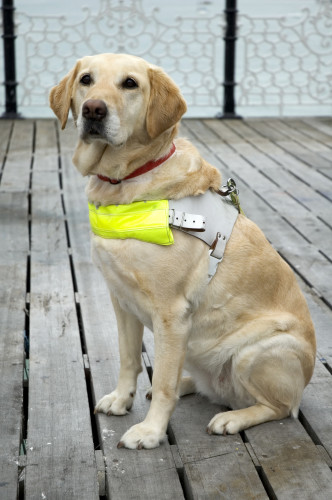10 Things You May Not Know About Guide Dogs
Posted on March 11, 2013 by Joy of Living No comments

Guide dogs are a great help to many people, but as Modern Dog magazine points out, there are some myths surrounding these great dogs. Check out this list:
- It’s a health code violation to have a guide dog in a restaurant. False. A guide dog is permitted by law to accompany his human anywhere, including restaurants.
- All guide dog users are totally blind. False. The majority of people considered legally blind can see light, shapes or movement. Only about 10% of legally blind people are totally blind.
- It’s not a problem to pet a guide dog while he’s working. False. Petting a guide dog will distract him from his responsibilities and potentially put him and his user in danger.
- Guide dogs never get to play. False. When off-duty, guide dogs are just like any other dog and get to play and have fun!
- Guide dogs know where to go. Not true. The guide understands commands like “forward”, “left” or “right” from his user, but he depends on directions from his user as to where to go. Often, if the dog’s user isn’t familiar with the area, he/she will ask someone in the vicinity about details of the area to learn the route.
- Guide dogs can read traffic lights. Not true. A guide dog will lead his user to a curb, then sit and await further instruction. The dog’s user will listen for traffic sounds to determine when it is safe to cross.
- Any dog can be trained to be a guide dog. Not true. There are very specific personality/temperament guidelines used to determine what dogs will be trained as guide dogs. Golden Retrievers, Labrador Retrievers and Golden/Lab mixes are often used in guide dog programs.
- Retired guide dogs are taken away from their user. Not always. A retired dog often stays with his user as a pet. If this is not possible, the dog is adopted by a pre-screened family.
- A blind person will only need one guide dog in his/her lifetime. Not true. Guide dogs typically have a career spanning 8 years before they’re retired, so a user may need several guide dogs during his/her lifetime.
- The government covers the cost of training and obtaining a guide dog. Not true. Programs such as Guide Dogs For The Blind rely on donations to keep their program running.

Comments